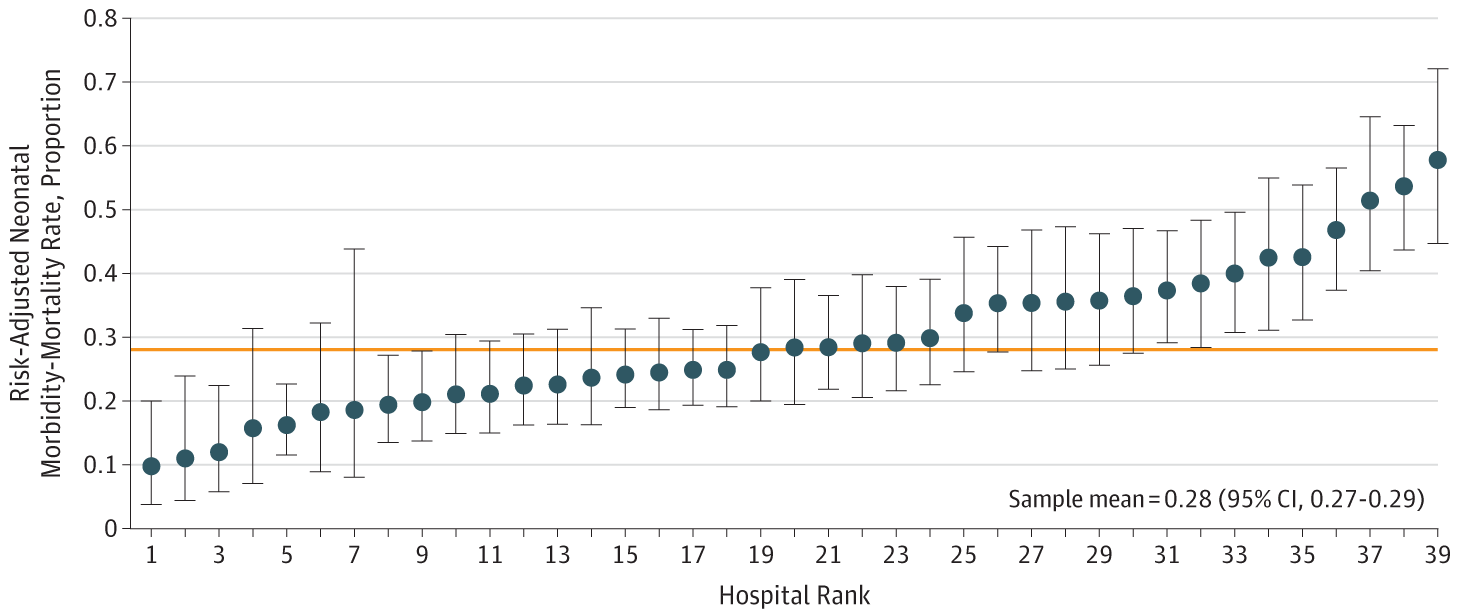
Share On Social!
A recent study shows that Latino and African American premature babies have a 2-to-4-times greater risk of four severe neonatal health problems compared to their white counterparts, CNN reports.
Latina moms already suffer from health disparities that impact their baby, according to a Salud America! Research Review:
- Maternal obesity
- Poor nutrition and lack of physical activity
- Lack of breastfeeding (less than 50% of Latina moms still breastfeed their newborns by age 6 months)
- Lack of paid maternity leave
Pregnant women who experience other health disparities, such as poverty and discrimination, may be related to birthing preterm babies.
“There is growing evidence that chronic stress associated with poverty and exposure to discrimination can lead to behavioral changes including substance use; but they can also directly affect biological changes in inflammation, neuroendocrine function, and vascular function, each of which increases the risk of prematurity,” Michael Kramer, and associate professor of Epidemiology at Emory who was not involved in the study, told CNN.

Error bars indicate 95% CI; horizontal line, the sample mean (0.28; 95% CI, 0.27-0.29).
About The Study
The study identifies four severe neonatal health problems:
- Necrotizing – impacts tissue in the intestine
- Intraventricular hemorrhage – bleeding in certain areas of the brain, which can be deadly
- Bronchopulmonary dysplasia, a lung condition that could result in long-term breathing difficulties
- Retinopathy of prematurity – an eye disorder that can cause blindness.
Previous studies show that disparities concerning these preterm morbidities have underestimated the real magnitude of the issue.
The study examined data from 582,297 infants in New York City who were born prematurely, specifically from 24 to 31 weeks’ gestation, between the years 2010 and 2014, and then later died between 2010 and 2015.
Researchers evaluated the prevalence of the four severe neonatal morbidities and closely looked at differences by race and ethnicity. Additionally, the data was adjusted for other factors such as socioeconomic status and/or the mother’s health.
Latino infants had a greater risk of necrotizing enterocolitis and intraventricular hemorrhage.
Black infants had increased risk of bronchopulmonary dysplasia and necrotizing enterocolitis.
Further research is needed to identify what factors are contributing to these disparities.
“Quality of care, both for the mother and the very preterm infant, likely plays a role, as well as a wide range of social, environmental and biological exposures to the developing fetus,” Teresa Janevic of the Icahn School of Medicine at Mount Sinai and lead author of the study, told CNN. “In our study, black and Hispanic infants were more likely to be born very preterm than white infants, which explains in part the wide disparities in morbidities.”
Magnitude of Disparities
Globally, an estimated 15 million babies are born preterm, which is 37 weeks gestation, and that number is continuously rising. Furthermore, preterm birth complications are the leading cause of death among children 5 years old and under.
In the U.S., 1 in 10 infants born were preterm births in 2016. The preterm birth rate that year was 50% higher in black women as compared to white women, according to the CDC.
This new study sheds lights on the disparities affecting Latina/o women and babies.
“We were not surprised to find that black and Hispanic infants are at higher risk of very preterm morbidities given what we know about their increased risk to be born extremely premature, as well as our previous work that hospital quality of care may play a role in racial and ethnic disparities in very preterm morbidity,” Janevic told CNN.
“However, the magnitude of the disparities is striking,” she said. “Also, we were somewhat surprised regarding the finding of increased risk of retinopathy of prematurity among Asian very preterm infants, a finding that needs to be researched further to replicate and potentially explain.”
How Can We Promote Healthy Babies for All Women?
Mothers’ physical activity and healthy eating habits before and during pregnancy play a big role.
Breastfeeding also has many positive effects on children. Healthy eating and physical activity habits established during early childhood care settings also is a stepping stone toward lifelong health, according to a Salud America! research review.
The research review made these policy recommendations:
- Promote breastfeeding via formula marketing reduction, paid maternity leave, and break time or private places to express milk at work.
- Enforce healthier eating and physical activity standards in early child care centers.
- Use culturally tailored prenatal programs to promote breastfeeding, maternal healthy lifestyles, and proper infant feeding habits among Latinas.
“It will take a team effort to get Latino kids on the path to a healthy weight,” said Dr. Amelie G. Ramirez, director of Salud America! and the Institute for Health Promotion Research at UT Health San Antonio.
Explore More:
Maternal & Child HealthBy The Numbers
142
Percent
Expected rise in Latino cancer cases in coming years



